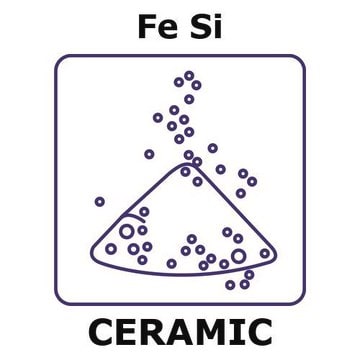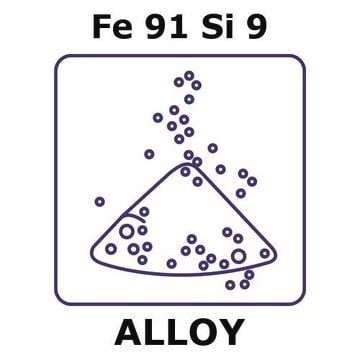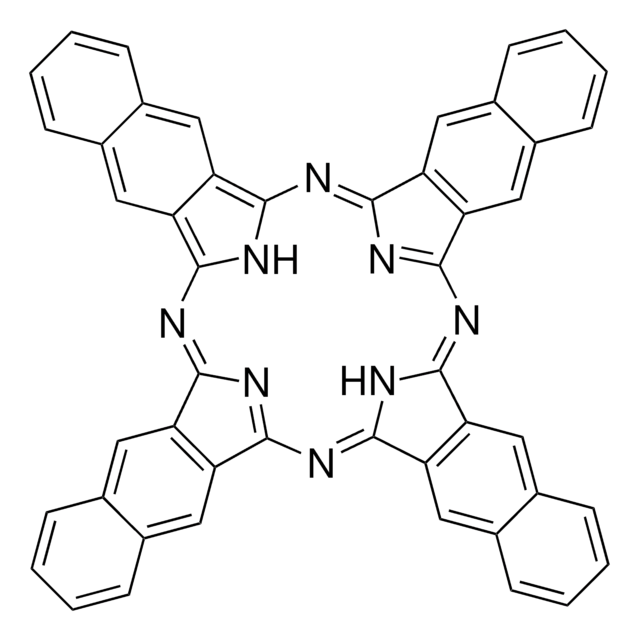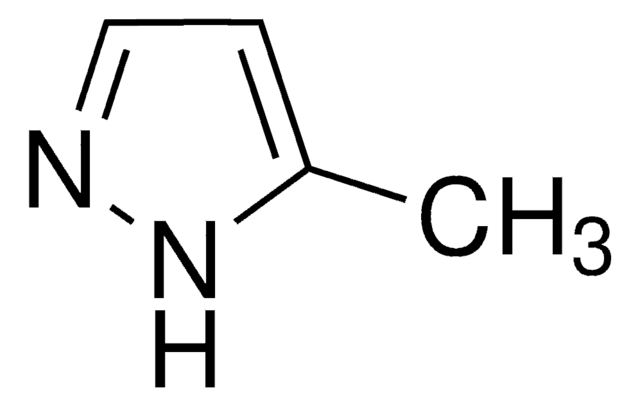752622
Iron disilicide
powder, -20 mesh, 99.9% trace metals basis
Synonym(s):
Iron silicide
About This Item
Recommended Products
Quality Level
Assay
99.9% trace metals basis
form
powder
greener alternative product characteristics
Design for Energy Efficiency
Learn more about the Principles of Green Chemistry.
sustainability
Greener Alternative Product
particle size
-20 mesh
mp
1220 °C (lit.)
greener alternative category
, Enabling
InChI
1S/Fe.2H2Si/h;2*1H2
InChI key
UVUDQHYBXBVHAI-UHFFFAOYSA-N
Looking for similar products? Visit Product Comparison Guide
General description
Application
Storage Class Code
11 - Combustible Solids
WGK
WGK 3
Flash Point(F)
Not applicable
Flash Point(C)
Not applicable
Choose from one of the most recent versions:
Certificates of Analysis (COA)
Don't see the Right Version?
If you require a particular version, you can look up a specific certificate by the Lot or Batch number.
Already Own This Product?
Find documentation for the products that you have recently purchased in the Document Library.
Articles
Higher transition metal silicides are ideal for anisotropic thermoelectric conversion due to their Seebeck coefficient anisotropy and mechanical properties.
Higher transition metal silicides are ideal for anisotropic thermoelectric conversion due to their Seebeck coefficient anisotropy and mechanical properties.
Higher transition metal silicides are ideal for anisotropic thermoelectric conversion due to their Seebeck coefficient anisotropy and mechanical properties.
Higher transition metal silicides are ideal for anisotropic thermoelectric conversion due to their Seebeck coefficient anisotropy and mechanical properties.
Our team of scientists has experience in all areas of research including Life Science, Material Science, Chemical Synthesis, Chromatography, Analytical and many others.
Contact Technical Service








